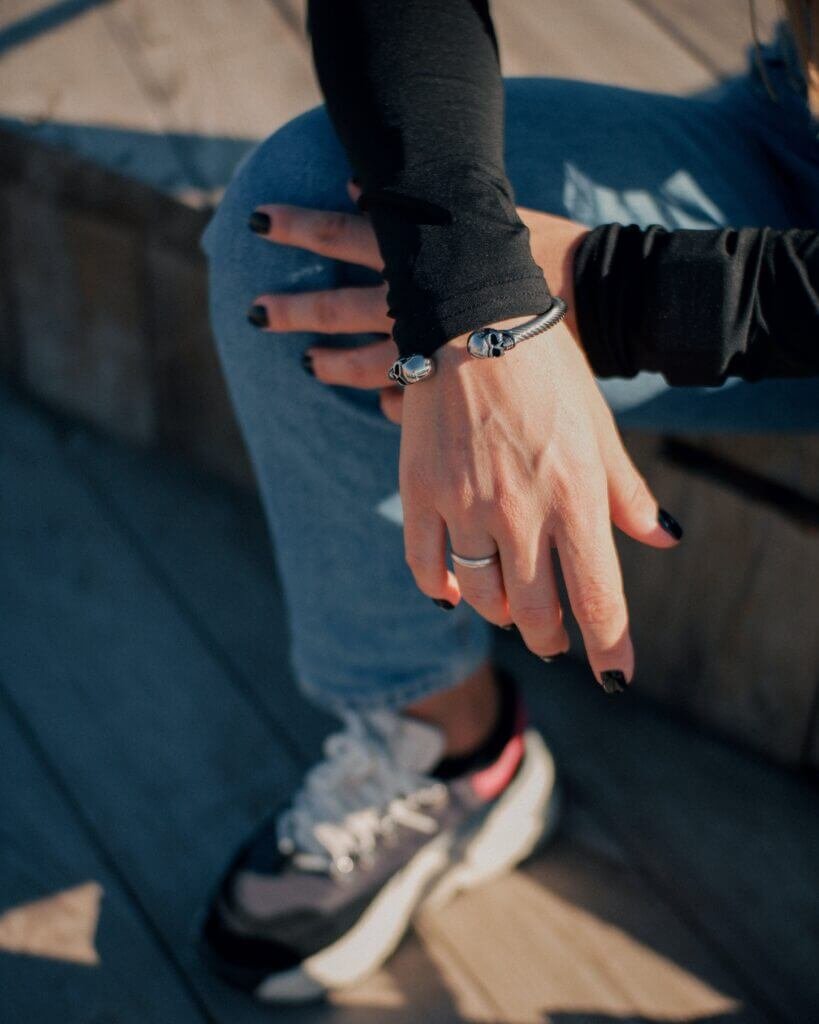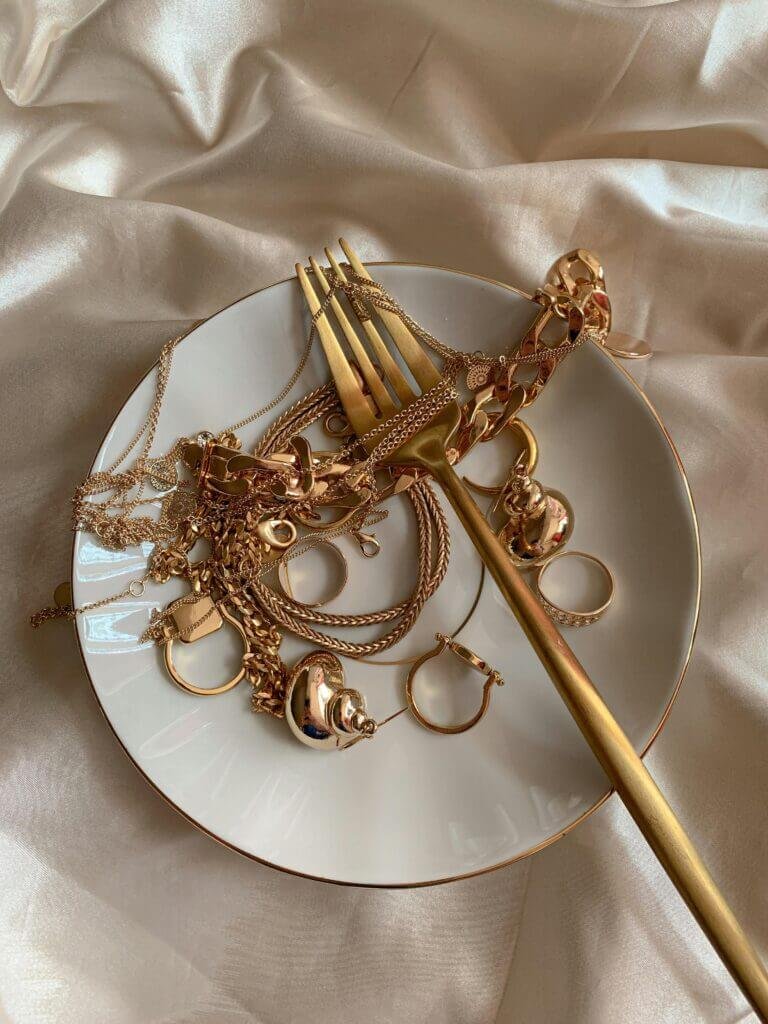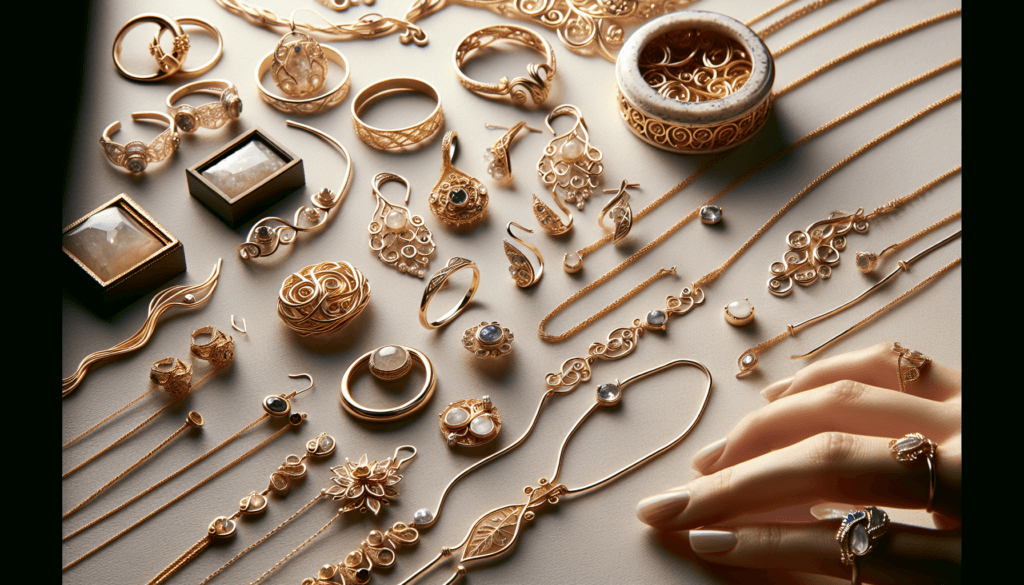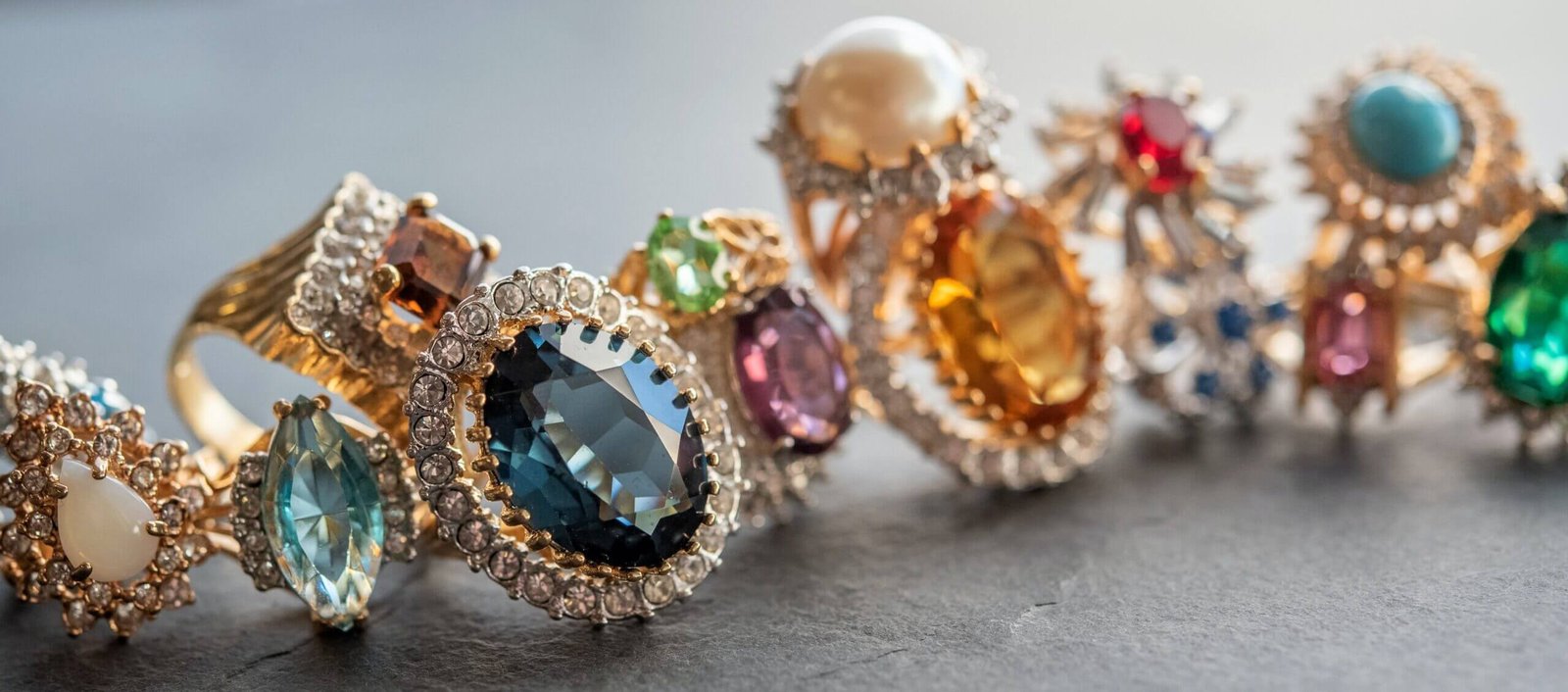Understanding the Value: Why is Handmade Jewellery More Expensive and What Makes 14K or 18K Gold Better?
Understanding the Value: Why is Handmade Jewellery More Expensive and What Makes 14K or 18K Gold Better? As you explore the world of fine jewels and exquisite accessories, you may be curious about why handmade jewellery carries a higher price tag or what truly distinguishes 14K gold from 18K. Well, you’ve come across the right article. Here, you’ll learn about the unique attributes and unparalleled craftsmanship that justify the cost of handmade gems. Furthermore, we discern the subtle yet significant differences between 14K and 18K gold, enabling you to appreciate their value better. So prepare to enrich your knowledge and develop a more nuanced perspective of the captivating realm of jewellery.

Understanding the Uniqueness of Handmade Jewelry
Handmade jewelry holds a certain allure that’s a testament to both the skill of the artisan making it and the particular tastes of the person wearing it. Let’s dive into the uniqueness of these pieces and uncover what makes them so special.
Defining ‘handmade’ in the context of jewelry
When we talk about handmade jewelry, we’re referring to pieces that are made by human hands, rather than by machines. These aren’t churned out assembly-style on a production line – each one is created, from start to finish, by an actual person. The handcrafting nature gives it a unique charm and personal touch that machine-made pieces simply can’t replicate.
The craftsmanship behind each unique piece
Every handmade piece is a testament to the skill, patience, and creativity of the craftsperson. They spend hours, days, even weeks, meticulously crafting each piece, ensuring that every curve is smooth, every setting is secure, and every gem is exquisitely cut. The end result is a one-of-a-kind piece of art, which reflects not just beauty but also the toil and passion of the artisan who made it.
The attention to detail in handcrafted treasures
Handmade jewelry is characterized by incredible attention to detail. Artisans pour over every little aspect, from choosing the perfect stone, creating the most detailed designs, to hand-polishing the final product. This care and precision are what sets handmade jewelry apart from mass-produced counterparts. These details make each piece unique and filled with character.
Why Handmade Jewellery is Pricier
Perhaps you’ve wondered why handmade jewelry often comes with a heftier price tag than its counterparts made using machines. The reasons are many-fold, and when you understand them, it’s clear to see the value behind the price.
The time and effort spent on each piece
Each piece of handmade jewelry takes significant time and effort to create. It’s no simple task to shape precious metals, to carefully set gems into place, and to polish the finished piece. All of these steps require the dedicated attention of a skilled craftsperson, and this time and effort contribute to the cost.
The higher cost of materials
When jewelry is handmade, it often means the use of superior quality materials. Artisans tend to select high-quality, ethically-sourced gems and pure metals to create their pieces. These materials are more expensive than the lower-quality alternatives commonly used in mass-produced jewelry, elevating the cost.
The talent and skill of the craftsperson
The talent and skill of the artisan are major contributors to the cost of handmade jewelry. Like an artist, a jeweler’s experience, mastery, and unique style play into the value of the work they create. Years of training and practice are behind every beautiful handmade piece.
The rarity and exclusivity factor involved
Handmade jewelry is inherently unique. No two pieces will ever be exactly the same, even from the same craftsperson. This exclusivity, the knowledge that you have a piece of jewelry that nobody else will ever have, is a significant part of the price you pay.

Production Process of Hand-Crafted Jewellery
Understanding the laborious process behind hand-crafted jewelry can give you a greater appreciation for the finished piece. Let’s take a peek into this world of craftsmanship.
Jewelry designing
The first step of creating a piece of jewelry is designing it. This can involve sketching out ideas, sometimes prototyping the piece, and planning out the materials and methods that will be used.
Selecting and sourcing the materials
Once the design is in place, the artisan will select and source the materials. This can include acquiring precious metals, and gems from reputable sources. These materials will be the foundations of the final jewelry piece.
Crafting the jewelry
The artisan then begins to craft the piece. This involves molding and shaping the metal, creating intricate designs, setting the stones, and sculpting it all into a cohesive, beautiful whole.
Quality checking and polishing
Once the piece is finished, it’s then inspected for any flaws or issues that need to be corrected. The piece is then hand polished to a brilliant shine, ready to be admired by lucky wearers.
Gold in Handmade Jewellery
Gold is a favorite material of artisans due to its beauty and malleability. Let’s delve deeper into its role in handmade jewelry.
Use of gold in jewelry making
Gold is beloved for its warm sheen and its robust character. In its pure form, it’s too soft to use for jewelry, so it’s usually alloyed with other metals to strengthen it.
The importance of gold purity in hand-crafted trinkets
The purity of gold is measured in karats. The higher the karat number, the greater the amount of gold in the piece. Jewelry makers often choose between 14K or 18K gold for their creations, both of which offer a balance between durability and purity.
Understanding the meaning of karat in gold
Karat is a measure of gold’s purity. 24 karat gold is pure gold, but it’s too soft for everyday wear. That’s why jewelers use lower karat gold, which is mixed with other metals for extra durability.

Understanding 14K Gold
14K gold is a popular choice in jewelry making. It balances the aspiration for gold purity and the practicality for everyday use.
Definition of 14K gold
14K gold is made of 58.3% gold and 41.7% other metals, making it strong and suitable for everyday wear. Despite being less pure than 18K gold, 14k gold still displays a beautiful golden hue
Characteristics and properties of 14K gold
14K gold is hardwearing and resistant to dings and scratches, which is why it’s an excellent choice for jewelry that will be worn frequently, like wedding rings or bracelets. Despite its strength, it maintains a rich golden glow that people love in their jewelry.
Why choose 14K gold for jewelry
When you choose 14K gold, you’re choosing durability without sacrificing the lustrous gold color. It’s also more affordable than 18K gold, making it an excellent choice for many jewelry lovers.
Understanding 18K Gold
Just a step below pure, 18K gold is loved for its high gold concentration while still maintaining a small level of hardness.
Definition of 18K gold
18K gold is composed of 75% gold and 25% other metals, giving it a higher purity level than 14K gold. The color of 18K gold is typically a deeper yellow than that of 14K gold due to its higher gold content.
Characteristics and properties of 18K gold
Although not as durable as 14K gold, 18K gold still offers sufficient hardness for most types of jewelry. Its high gold content gives it a deep, rich color that is closer to pure gold, which many people find attractive.
Why choose 18K gold for jewelry
You might choose 18K gold if you prefer jewelry with a deeper gold color, or if you like the idea of owning something closer to pure gold. Keep in mind that because it’s softer than 14K gold, it’s a bit more susceptible to scratches and wear.

Comparing 14K and 18K Gold
When choosing between 14K and 18K gold, there are a few key differences to keep in mind. Both are excellent choices, but the best decision depends on your preferences and lifestyle.
Differences in gold purity
One of the main differences between 14K and 18K gold is their gold purity. 14K gold contains 58.3% gold, while 18K gold contains 75% gold. This means that 18K gold is richer in color and closer to the pure gold standard.
Comparing the durability and hardness
In terms of durability, 14K gold has the upper hand. The higher percentage of alloyed metals in 14K gold makes it harder than 18K gold, which makes it more suitable for jewelry pieces that will be worn daily or subjected to rough use.
Price differences between 14K and 18K gold
Unsurprisingly, 18K gold tends to be more expensive than 14K gold due to its higher gold content. However, the final price of a piece of jewelry will also depend on the design, craftsmanship, and possible gemstones used in addition to the gold.
The Role of Gemstones in Handmade Jewellery
Gemstones are the crowning glory of many pieces of jewelry, adding splashes of color, glimmer, and personality.
Common gemstones used in jewelry
Diamonds, rubies, sapphires, and emeralds are often the go-to choices for handmade jewelry, but there is a huge variety of precious and semi-precious gemstones to select from. Opals, garnets, amethyst, topaz, and pearls also add a unique touch to handmade jewelry pieces.
How gemstones affect the price of jewelry
The value of gemstones can vary immensely. The type, size, cut, quality, and rarity of the gemstone used in the piece can significantly influence the overall price of the handmade jewelry.
How to evaluate the quality of gemstones
When choosing a gemstone, consider its color, cut, clarity, and carat weight, also known as the “Four Cs.” These factors, combined with the rarity of the gemstone, can greatly impact its price and value.

Understanding Diamond Carat in Handmade Jewellery
The carat weight of a diamond is one of the major factors that determines its value. It’s essential to understand what this means when selecting jewelry.
What does ‘carat’ mean in diamonds
A carat is a unit of weight used for measuring gemstones and pearls. When it comes to diamonds, carat refers to the weight of the diamond, not its size.
How big is a 1ct diamond?
A 1ct diamond weighs 200 milligrams and is roughly 6.5 mm in diameter. It’s worth noting that the size of the diamond doesn’t always relate to its weight because different cuts can have varying depths and proportions.
Impact of diamond carat on the price of jewelry
The carat weight of a diamond is one of the major factors that influence its cost. Generally, the heavier the diamond, the more expensive it is, particularly if it also performs well in the other three Cs: color, cut, and clarity.
Is Handmade Jewellery Worth the Cost?
When mulling over whether to invest in handcrafted jewelry, it’s key to consider both its intrinsic and sentimental value. Why Should I Buy Handmade Jewelry?
Longevity and durability of handcrafted pieces
Handmade jewelry is typically created using high-quality materials and excellent craftsmanship. This results in pieces that have a much longer lifespan compared to mass-produced items, making them well worth the investment.
The emotional and sentimental value
Handcrafted pieces usually contain more emotional and sentimental value, especially if they’re custom-designed. The care, thought, and love garnished into each piece, combined with the uniqueness, often means they hold a special place in your heart. https://gem-a.com/
Investment value of handmade jewelry
Some handmade jewelry pieces, particularly those made with high-quality metals and gemstones, can appreciate in value over time. They’re not just beautiful pieces to wear; they can also be a long-term investment.
Making an informed decision when buying handmade jewelry
Whether you choose to invest in handmade jewelry or not, it’s crucial to understand what you’re buying. Consider the materials, craftsmanship, and pricing when selecting your piece. Ultimately, the jewelry you choose should be an expression of your personal style and a piece you treasure.



